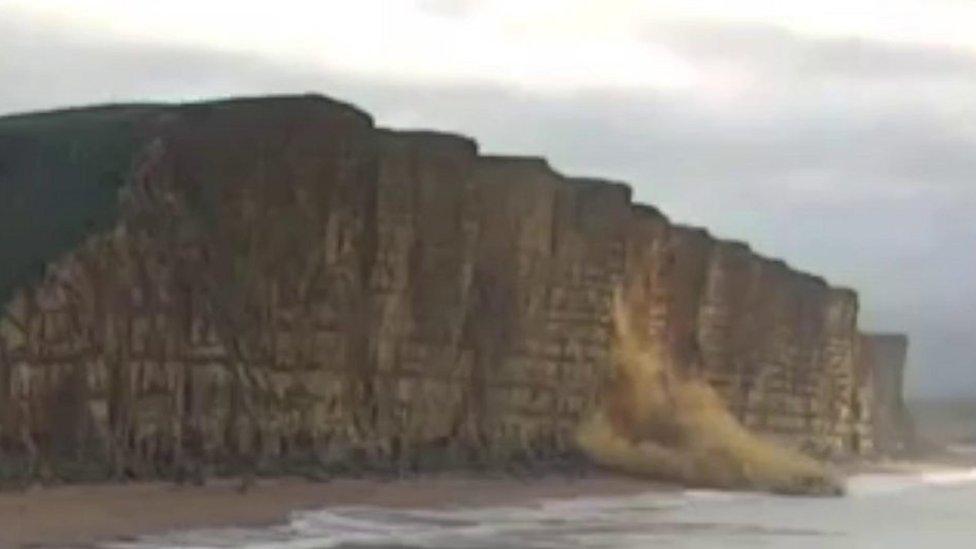Jurassic Coast cliff falls tempt fossil hunters
- Published
Beachgoers had to run when a cliff collapsed at West Bay in August. Video: Daniel Knagg
Recent footage of people running from collapsing cliffs is a stark reminder of the dangers of our coast.
But on one stretch of Dorset's Jurassic Coast, major cliff falls are soon followed by an influx of fossil hunters, creating a headache for those tasked with keeping people safe.
The unstable shores have seen numerous rescues and even some fatalities.
But as experts explain, those taking the risks are usually the least likely to find any prehistoric remains.
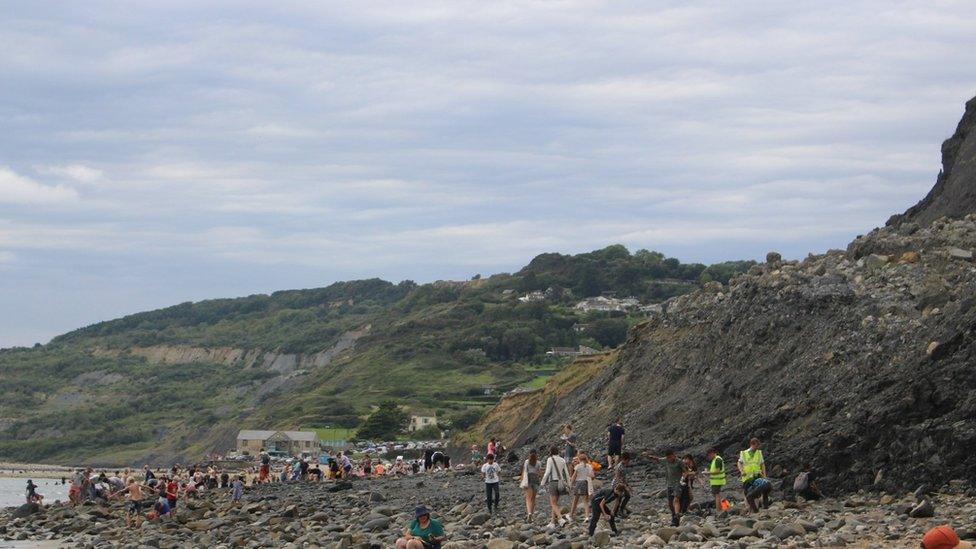
Hundreds of tourists scour the beach in the aftermath of a cliff fall
Several major cliff falls have already been reported this year at West Bay and Charmouth.
During the tourist season, the beaches at Charmouth are patrolled by fossil wardens whose job it is to warn visitors against the riskiest behaviour, and steer them towards the easier pickings near the shoreline.
"If I see someone hacking away at the bottom of the cliff, I will go and speak to them," says Stuart Godman, who has been patrolling the beach for 17 years.
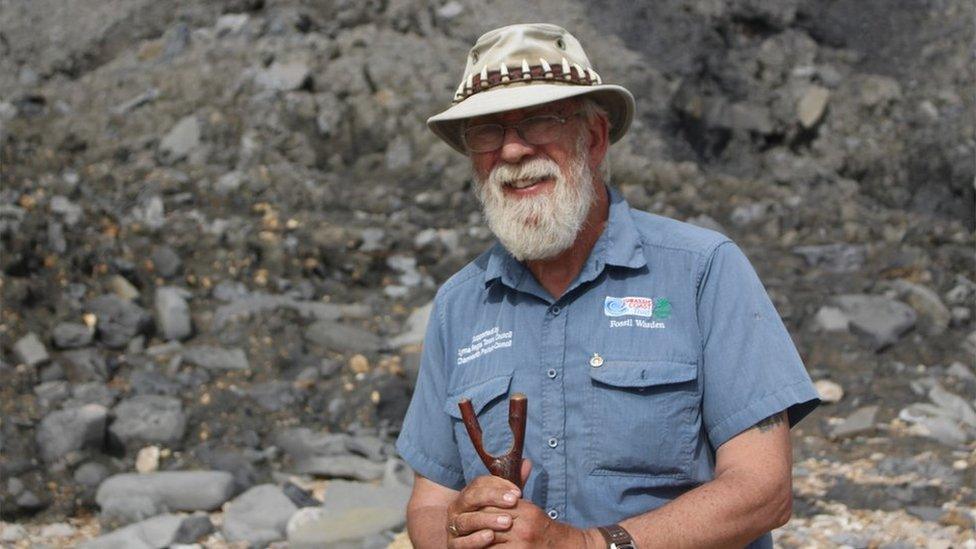
Stuart Godman has been patrolling the beach at Charmouth for 17 years
"You will always get the odd person here and there who does not listen but I'm not going to get into an argument with them."
It seems the majority of risk takers are holidaymakers - keen to bag themselves a souvenir, oblivious to the slow trickle of dust and stones from above.
Mr Godman points out huge boulders on the crowded beach that he says were not there the day before.
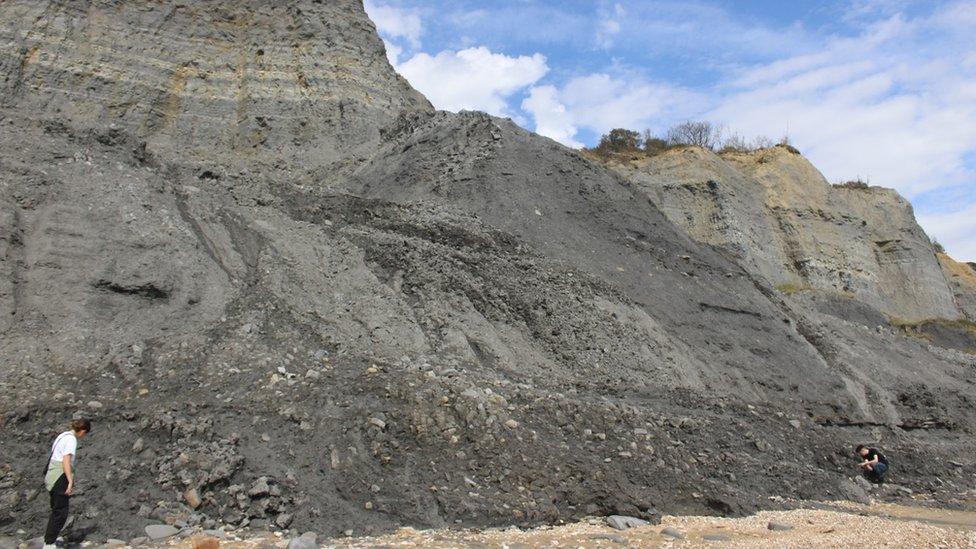
People are discouraged from digging at the base of the collapsing cliff
The fossils at Charmouth are about 180-200 million years old and embedded in the dark-grey limestone. The air is filled with the sound of the waves and of hammers hitting rock.
Anyone found hitting the pale, more recently formed chert stone is strongly discouraged because it splinters, making it hazardous and impossible to split successfully.
"If you look along the shoreline, that's where you will find the fossils, usually after a few tides," said Mr Godman.
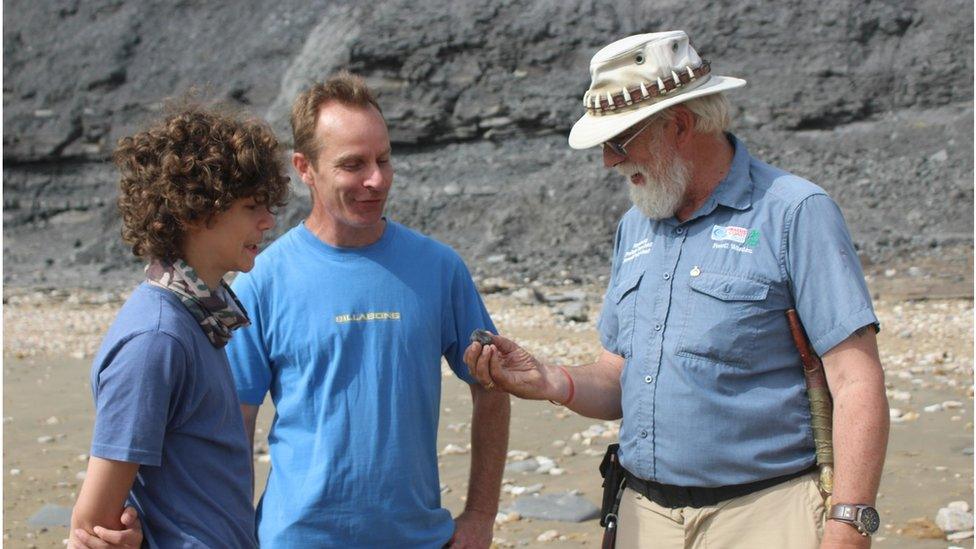
Isaac Cousins, 13, (left) discovered an ichthyosaur vertebra on the water's edge
And, as if on cue, a father and son approach, holding up a vertebra of an ichthyosaur - a prehistoric marine reptile - they found on the water's edge.
Aspiring palaeontologist Isaac Cousins, 13, had clearly done his research, knowing exactly where to look and even correctly identifying his find.
Rising up from the beach is the remains of the latest rockfall - a huge shelf of soft clay and crumbling rock that fell in July.
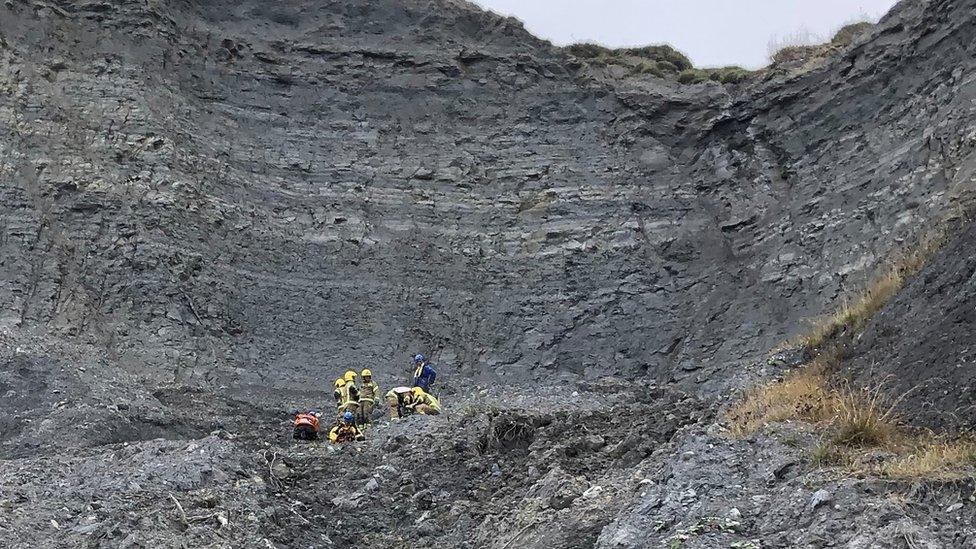
Stuart Godman called emergency services in 2020 after finding a boy stuck in mud on the cliffs
About 20ft (6m) up, on top of the landslip, a small group of adults and teenagers hunt for prehistoric treasure.
Three years ago, close to this very spot, Mr Godman encountered a similar scene - a family fossil-hunting high up on the collapsed cliff.
"I suggested they come down but the lad, an 11-year-old, had got stuck in the mud 80-90ft (25m) up the cliff."
A drone captured the extent of a landslip near West Bay in July. Video: Lyme Bay RIB Charter
With the tide coming in, Mr Godman alerted the emergency services, triggering a rescue operation involving two coastguard teams, three fire engines and the ambulance service - about 40 people in total.
Aside from mild hypothermia, the boy was uninjured, but his predicament highlighted that falling rocks are not the only danger here.
Lizzie Hingley, a commercial fossil hunter, says her most successful beach trips have often been weeks or months after a collapse.
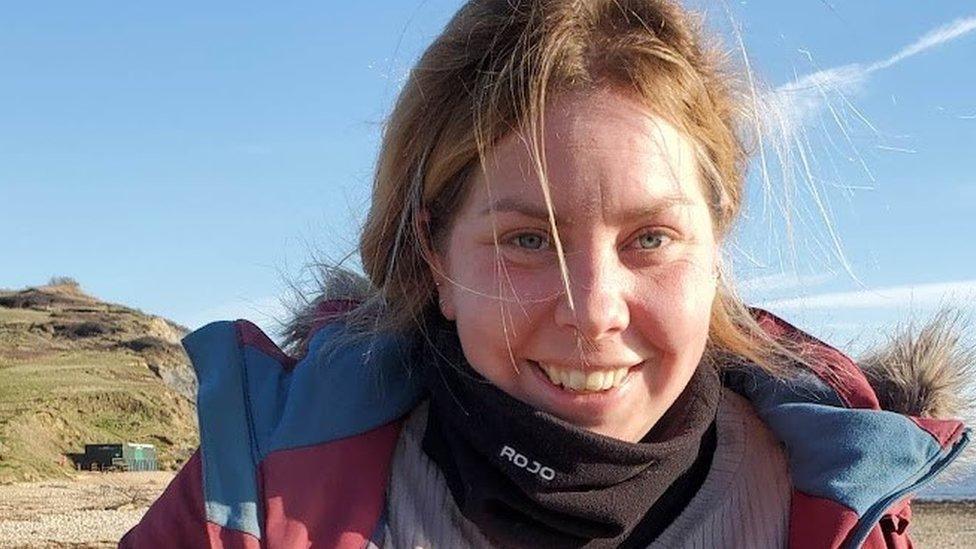
Lizzie Hingley has found prehistoric species previously unknown to science
Her methods speak for themselves with her finds including "category one" fossils - species previously unknown to science, which have been named after her.
"People who go straight after a cliff fall, unless you know what you are doing or if it goes through a certain layer of cliff, you are unlikely to find anything," she said.
"Sometimes it's a case of waiting for the tide to run over it to break it up. Sometimes it's a couple of months after the landslide.
"If you go around hitting random rocks with a hammer, one person in a million might have some luck. Your eyes really are your best tool."
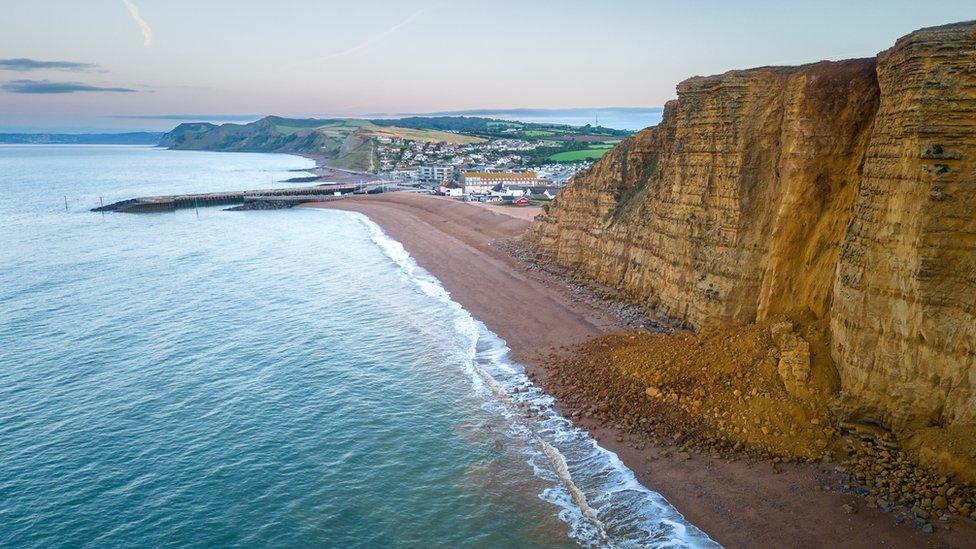
A significant cliff fall in August blocked the beach at West Bay
Ms Hingley, who began fossil hunting as a child, turned professional six years ago, preparing and selling her finds online.
She estimates there are about 10 or 20 others like her, making a living from the beach.
"There are certain beaches that I would not go to," she said. "Not Burton Bradstock or West Bay because they do have a tendency to collapse."
A collapse in January blocked the beach between Burton Bradstock and West Bay. Video: @EnvAgencySW
It was on this stretch in 2012 that tragedy struck when a sudden collapse killed 22-year-old holidaymaker Charlotte Blackman, who had been walking along the beach with her boyfriend and family who were just metres away.
Following the latest spate of collapses, large warning signs mark the start of the cliffs but, 50m (160ft) up, the occasional intrepid explorer can be seen peering over the overhang, while families picnic on the beach below.
Every hour, a voice from the RNLI lifeguards office booms over a loudspeaker, urging people to stay clear.
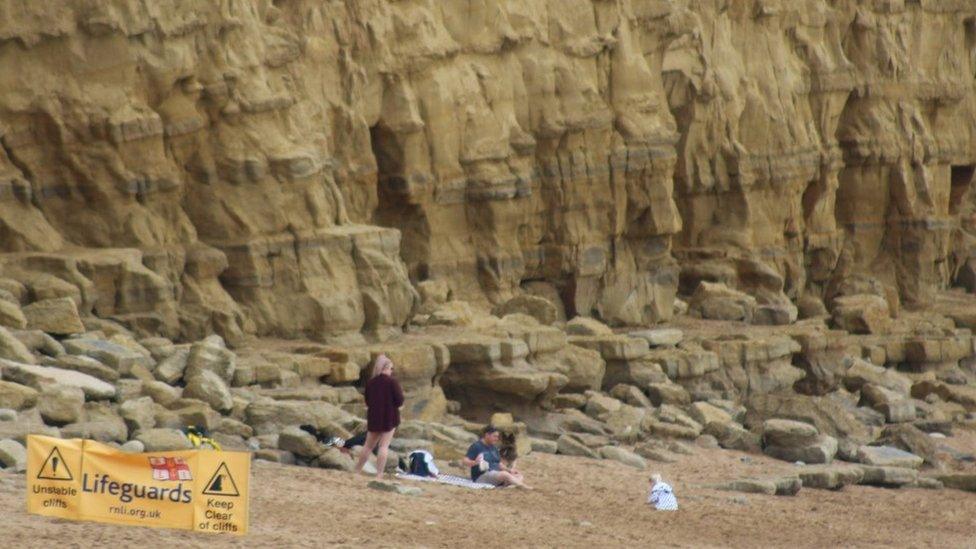
Signs at West Bay urge people to stay away from the cliffs
The coast between Lyme Regis and Burton Bradstock, primarily owned by the National Trust and Charmouth Parish Council, is covered by a "fossil collecting code of conduct, external", aimed at keeping people safe and ensuring finds are correctly recorded.
It urges people to only search on a falling tide, avoid the base of cliffs, wear appropriate clothing and to tell someone of their whereabouts and expected return time.
The coastguard offers similar advice, external, adding that people should carry a charged mobile phone.
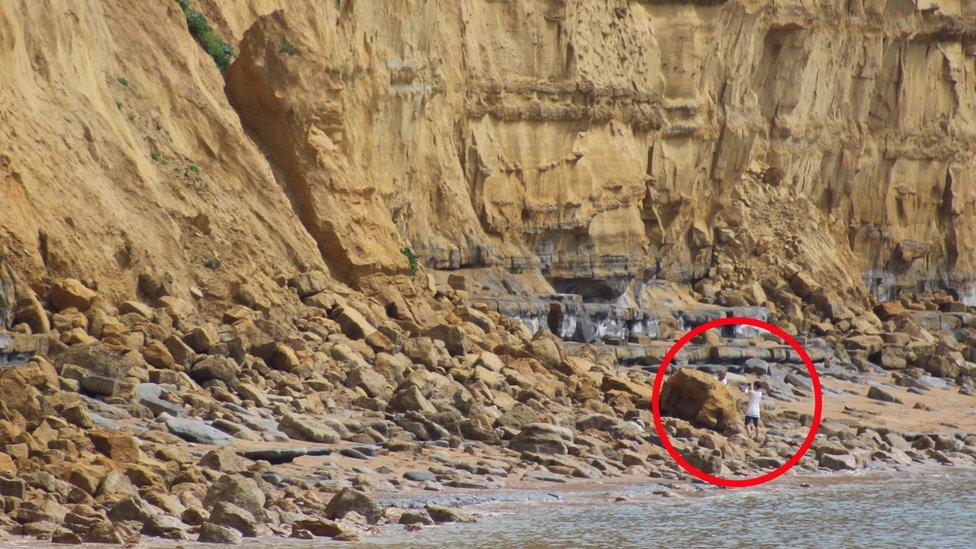
Walkers clamber over recent rockfalls to take photographs beneath the latest cliff collapse

Follow BBC South on Facebook, external, Twitter, external, or Instagram, external. Send your story ideas to south.newsonline@bbc.co.uk, external.
- Published10 August 2023
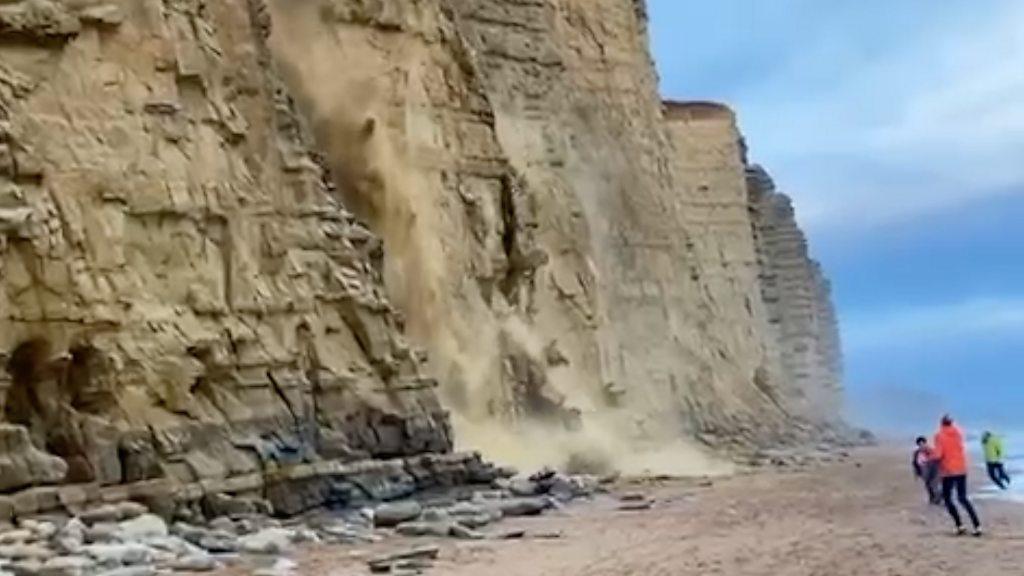
- Published9 August 2023
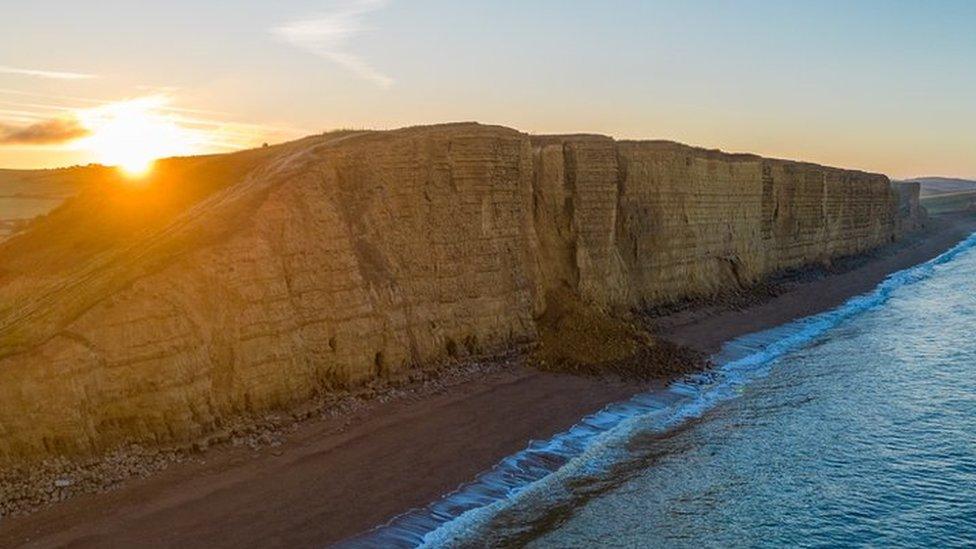
- Published24 July 2023
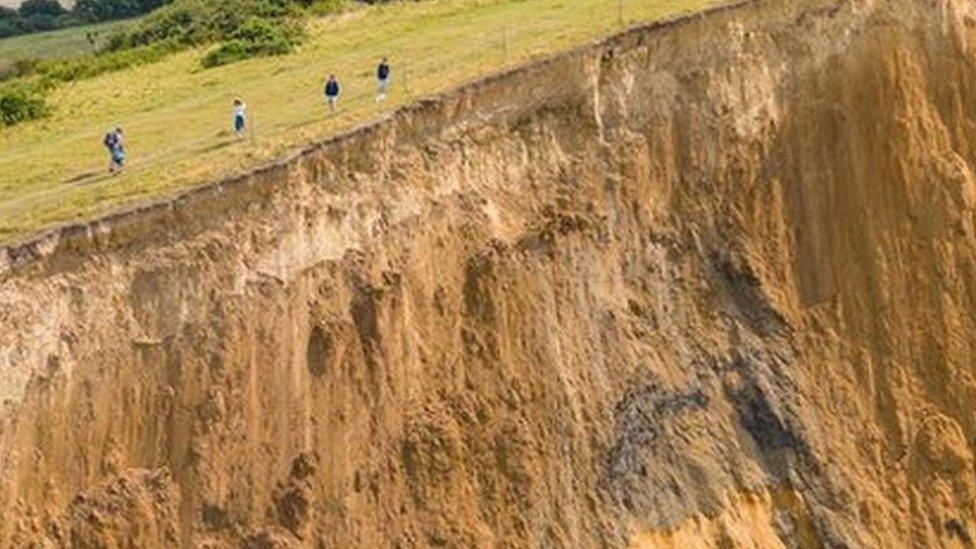
- Published21 July 2023
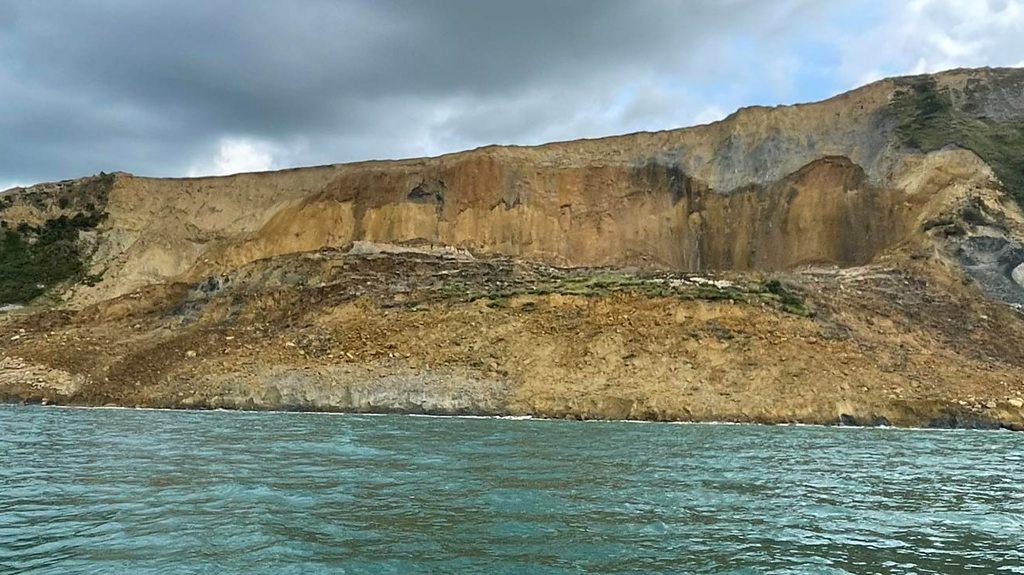
- Published26 January 2023
